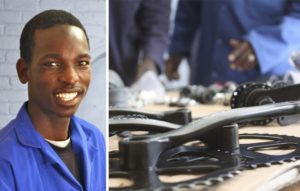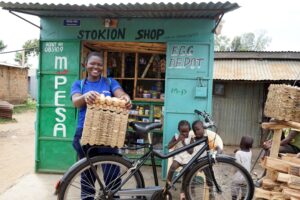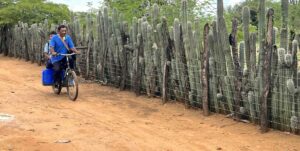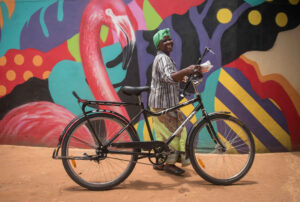
Princely ist seit dem Jahr 2010 bei World Bicycle Relief angestellt. Er begann damals in der Montage und arbeitete sich hoch. Schon bald war er für Schulungen und die Qualitätskontrolle verantwortlich. Heute ist Princely als Produktspezialist für alle Programmländer zuständig. In dieser Funktion fokussiert er sich auf das Feedback der Nutzer*innen der Fahrräder.
„World Bicycle Relief hat mir Möglichkeiten eröffnet und mir Vertrauen geschenkt. Wenn ich mir anschaue, wie ich angefangen habe und was ich erreicht habe … Ich bleibe weiter am Ball und entwickle mich weiter, probiere neue Dinge aus und lerne aus all den Erfahrungen.“




